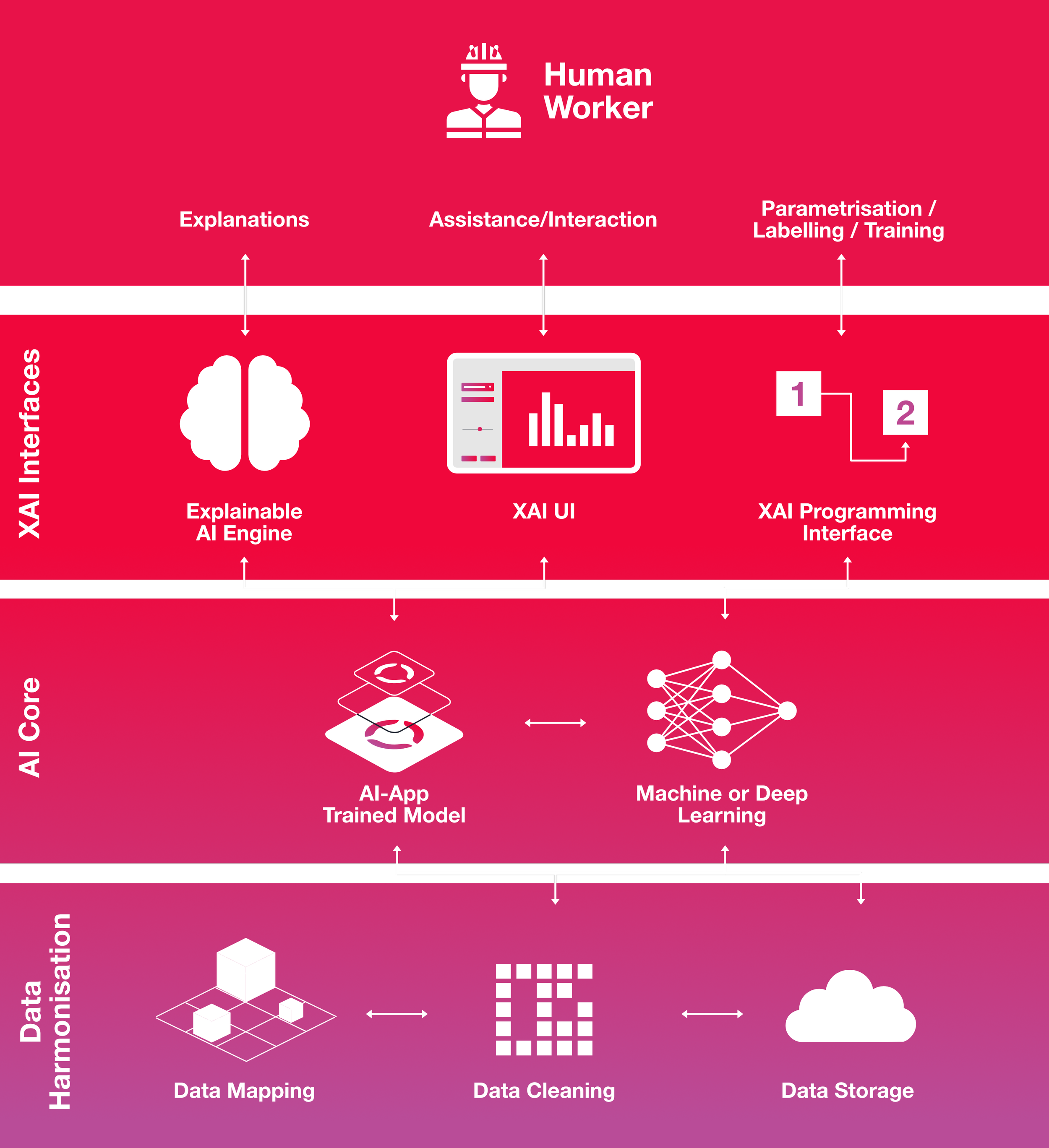Technologies
Circular TwAIn aims to make the deployment of AI applications accessible for a broad range of industrial processes.
As part of the Circular TwAIn Development Framework, the project will design and publish 2 different types of software modules.
AI application modules:
encapsulating all machine learning functionalities as elementary building blocks for virtuous human-AI solutions, which will facilitate the development and synthesis of complex AI pipelines.
Interface Modules:
proving standard interface connectors to the digital twin of the process, product and human worker in order to feed the human-AI solutions with the appropriate data.
This modular, service-oriented framework architecture allows to dynamically combine, extend, add and deploy modules according to the requirements of the specific target application.
The architectural framework is based on the principles of
-
Keep software developments in modular and reusable building blocks that will speed up the development and adoption processes.
-
Use of existing frameworks and standards, ensuring an acceptable level of technical maturity.
-
Use of as many open-source components as possible.
-
Fully exploit and combine the scalability and elasticity of cloud-resources.
AI Application Modules
The Circular TwAIn development framework is based on AI Application Modules that contain all machine learning functionalities, as elementary building blocks for human-AI solutions.
The AI Application Modules include both deep learning and classical machine learning and will be developed using open-source frameworks.
Deep learning will be extensively used in several procedures including the visual classification of objects in the disassembly, inspection, and testing of components, while classic machine learning algorithms will be used for the analyses and predication of current and future market situation.
The Application Modules may include pre-trained models addressing common challenges in the industrial setting but can also be customised and extended with further training data.
Digital Twin – Interface Modules
The project will structure Digital Twins for Circular Manufacturing to facilitate their integration and interactions. This will enable collaborative intelligence based on a cluster of Circular Digital Twins to facilitate AI applications across the entire circular value chain.
In this respect, Circular TwAIn identifies three highly significant sources of data and information input to train the human-AI applications:
1. The (de-)manufacturing process
2. The product to be de-manufactured
3. The human operator



